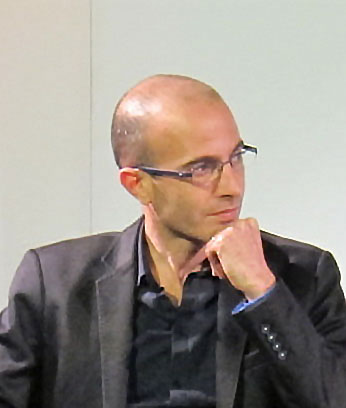
Unveiling Yuval Noah Harari’s Intellectual Landscape
Yuval Noah Harari, the Israeli historian and author, has risen to prominence in recent years for his provocative theories on the past, present, and future of humanity. But beneath the veneer of intellectualism lies a landscape ripe for critical examination. Who is Yuval Noah Harari, and what are the implications of his ideas?
Deconstructing Harari’s Narrative
Harari’s narrative is characterized by grandiose claims and sweeping generalizations that often oversimplify complex historical and sociopolitical phenomena. From his bestselling debut, “Sapiens: A Brief History of Humankind” (2011), to his subsequent works like “Homo Deus: A Brief History of Tomorrow” (2015) and “21 Lessons for the 21st Century” (2018), Harari presents a compelling but reductionist view of human history and evolution.
The Dangers of Techno-utopianism
Harari’s techno-utopian vision, as espoused in “Homo Deus,” posits a future in which humanity transcends its biological limitations through advances in technology, such as artificial intelligence and genetic engineering. While Harari acknowledges the potential pitfalls of such developments, his overall optimism regarding the trajectory of human progress raises questions about the ethical implications and societal consequences of unchecked technological advancement.
Critiquing Harari’s Historical Analyses
Harari’s interpretations of historical events and phenomena have come under scrutiny from scholars and experts in various fields. Critics argue that his reliance on broad generalizations and selective evidence overlooks nuance and complexity, leading to a distorted understanding of the past. Moreover, his tendency to extrapolate from historical trends to make predictions about the future raises doubts about the validity of his prognostications.
The Limits of Harari’s Interdisciplinary Approach
While Harari’s interdisciplinary approach to history and futurism is laudable in its ambition, it also runs the risk of oversimplification and reductionism. By synthesizing insights from disparate fields such as biology, anthropology, and economics, Harari constructs a coherent narrative that is compelling but may lack the depth and rigor demanded by each individual discipline.
Challenging Harari’s Paradigm
In critically examining the ideas of Yuval Noah Harari, we confront the inherent tensions and contradictions that underlie his intellectual project. While Harari’s work has undoubtedly sparked widespread interest and debate, it is essential to approach his ideas with a healthy dose of skepticism and critical inquiry. By interrogating the foundations of his narrative and challenging its assumptions, we can foster a more nuanced understanding of the complexities of human history, society, and technology.
As we navigate an increasingly uncertain and complex world, let us heed the words of Harari himself: “The greatest scientific discovery was the discovery of ignorance. Once humans realised how little they knew about the world, they suddenly had a very good reason to seek new knowledge.”
With this critical examination of Yuval Noah Harari’s ideas, we embark on a journey of intellectual exploration, seeking to unravel the mysteries of the past, interrogate the realities of the present, and imagine the possibilities of the future.



